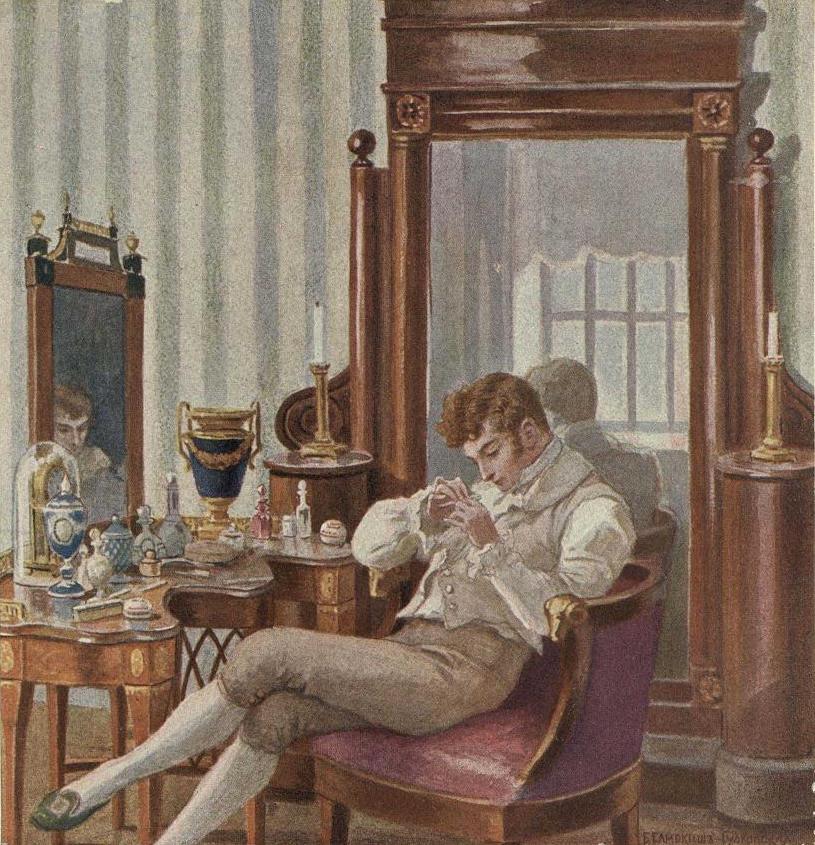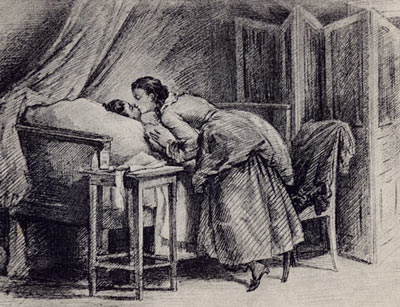|
Pushkin
Alexander Sergeyevich Pushkin () was a Russian poet, playwright, and novelist of the Romantic era.Basker, Michael. Pushkin and Romanticism. In Ferber, Michael, ed., ''A Companion to European Romanticism''. Oxford: Blackwell, 2005. He is considered by many to be the greatest Russian poet,Short biography from University of Virginia . Retrieved 24 November 2006.Allan Reid, "Russia's Greatest Poet/Scoundrel" Retrieved 2 September 2006. as well as the founder of modern Russian literature [...More Info...] [...Related Items...] OR: [Wikipedia] [Google] [Baidu] |
Eugene Onegin
''Eugene Onegin, A Novel in Verse'' (, Reforms of Russian orthography, pre-reform Russian: Евгеній Онѣгинъ, романъ въ стихахъ, ) is a novel in verse written by Alexander Pushkin. ''Onegin'' is considered a classic of Russian literature, and its eponymous protagonist has served as the model for a number of Russian literary heroes (so-called ''superfluous men''). It was published in serial form between 1825 and 1832. The first complete edition was published in 1833, and the currently accepted version is based on the 1837 publication. Almost the entire work is made up of 389 fourteen-line stanzas (5,446 lines in all) of iambic tetrameter with the unusual rhyme scheme , where the uppercase letters represent feminine rhymes while the lowercase letters represent masculine rhymes. This original structure is known as the "Onegin stanza" or "Pushkin sonnet". The story is told by a narrator (a lightly fictionalized version of Pushkin's public image), whose ton ... [...More Info...] [...Related Items...] OR: [Wikipedia] [Google] [Baidu] |
Boris Godunov (play)
''Boris Godunov'' (; variant title: , ''A Dramatic Tale, The Comedy of the Distress of the Muscovite State, of Tsar Boris, and of Grishka Otrepyev'') is a play by Alexander Pushkin. It was written in 1825, published in 1831, but not approved for performance by the censor until 1866. It premiered in 1870. Its subject is the Russian ruler Boris Godunov, who reigned as Tsar from 1598 to 1605. It consists of 25 scenes and is written predominantly in blank verse. Modest Mussorgsky's opera, '' Boris Godunov'' (1874), is based on this play. Characters * Boris Godunov, boyar, later Tsar * Feodor, his son * Xenia, his daughter * Xenia's Nurse * Prince Shuisky, boyar * Prince Vorotinsky, boyar * Shchelkalov, Secretary of the Duma * Pimen, monk and chronicler * Grigoriy Otrepyev, monk, later Dmitriy, the Pretender * Patriarch, Abbot of the Chudov Monastery. * Misail, wandering monk * Varlaam, wandering monk * Afanasy Mikhailovich Pushkin, friend of Prince Shuisky * Gabriel Pushkin ... [...More Info...] [...Related Items...] OR: [Wikipedia] [Google] [Baidu] |
Abram Petrovich Gannibal
Abram Petrovich Gannibal, also Hannibal or Ganibal, or Abram Hannibal or Abram Petrov (; c. 1696 – 14 May 1781), was a Russian Chief Military Engineer, General-in-Chief, and nobleman of African origin. As a child, Gannibal was captured by Ottomans and brought to Russia as a gift for Peter the Great. He was then raised in the emperor's court, with the emperor becoming his godfather at his baptism.Phillips, Mike"Pushkin's African background – the Pushkins and the Gannibals."British Library. Retrieved May 26, 2016. Gannibal eventually rose to become a prominent member of the imperial court in the reign of Peter's daughter Elizabeth. He had 11 children, most of whom became members of the Russian nobility. One of his great-grandsons was the author and poet Alexander Pushkin. Early life The main reliable accounts of Gannibal's early life come from '' The Moor of Peter the Great,'' Pushkin's unfinished biography of his great-grandfather, published after Pushkin's death in 1837. S ... [...More Info...] [...Related Items...] OR: [Wikipedia] [Google] [Baidu] |
Natalia Pushkina
Natalia Nikolayevna Pushkina-Lanskaya (; 8 September 1812 – 26 November 1863) ( Goncharova) (Гончарова) was the wife of the Russian poet Alexander Pushkin from 1831 until his death in 1837 in a duel with Georges d'Anthès. Natalia was married to Major-General Petr Petrovich Lanskoy from 1844 until her death in 1863. Prior to marriage Natalia (Natalya) Goncharova was born on 8 September 1812 (27 August 1812 Old Style) in Karian village in Tambov Governorate (in present-day Znamensky District, Tambov Oblast), where her family lived during the occupation of Moscow by the forces of Napoleon. Her father, Nikolay Afanasievich Goncharov, a scion of the family of paper manufacturers from Kaluga, was pronounced demented in 1815; the household was managed by his wife, Natalia Ivanovna Zagriajskaya, an imperious lady with connections within Muscovite nobility. Her ancestors includeEuphrosine Ulrike von Liphart and Ivan Aleksandrovich Zagryazhskij Natalie (as she was fami ... [...More Info...] [...Related Items...] OR: [Wikipedia] [Google] [Baidu] |
Russian Literature
Russian literature refers to the literature of Russia, its Russian diaspora, émigrés, and to Russian language, Russian-language literature. Major contributors to Russian literature, as well as English for instance, are authors of different ethnic origins, including bilingual writers, such as Kyrgyz novelist Chinghiz Aitmatov. At the same time, Russian-language literature does not include works by authors from the Russian Federation who write exclusively or primarily in the native languages of the indigenous non-Russian ethnic groups in Russia, thus the famous Dagestani poet Rasul Gamzatov is omitted. The roots of Russian literature can be traced to the Early Middle Ages when Old Church Slavonic was introduced as a liturgical language and became used as a literary language. The native Russian vernacular remained the use within oral literature as well as written for decrees, laws, messages, chronicles, military tales, and so on. By the Age of Enlightenment, literature had gro ... [...More Info...] [...Related Items...] OR: [Wikipedia] [Google] [Baidu] |
Ruslan And Ludmila
''Ruslan and Ludmila'' ( pre-reform Russian: ; post-reform ) is a poem by Alexander Pushkin, published in 1820. Written as an epic literary fairy tale consisting of a dedication (посвящение), six "cantos" ( песни), and an epilogue ( эпилог), it tells the story of the abduction of Ludmila, the daughter of Prince Vladimir of the Kievan Rus' (reigned 980–1015), by an evil wizard and the attempt by the brave knight Ruslan to find and rescue her. Origin Pushkin began writing the poem in 1817, while attending the Imperial Lyceum at Tsarskoye Selo. He based it on Russian folktales he had heard as a child. Before it was published in 1820, Pushkin was exiled to the south of Russia for political ideas he had expressed in other works such as his " Ode to Liberty" (вольность). A slightly revised edition was published in 1828. Synopsis Dedication Pushkin dedicates the poem to unnamed young beauties, the "queens of my soul" (души моей цариц� ... [...More Info...] [...Related Items...] OR: [Wikipedia] [Google] [Baidu] |
Ode To Liberty (poem)
"Ode to Liberty" is a poem written by Alexander Pushkin. Upon graduation from the Lycee, Pushkin publicly recited the poem, one of several that led to his exile by Tsar Alexander the First. Authorities summoned Pushkin to Moscow after the poem was found among the belongings of the rebels from the Decembrist Uprising (1825). Poem In Russian Вольность: Ода Александр Пушкин References Russian poetry Alexander Pushkin Alexander Sergeyevich Pushkin () was a Russian poet, playwright, and novelist of the Romantic era.Basker, Michael. Pushkin and Romanticism. In Ferber, Michael, ed., ''A Companion to European Romanticism''. Oxford: Blackwell, 2005. He is consid ... 1800s poems Decembrist revolt {{poem-stub ... [...More Info...] [...Related Items...] OR: [Wikipedia] [Google] [Baidu] |
Golden Age Of Russian Poetry
Golden Age of Russian Poetry (or ''Age of Pushkin'') is the name traditionally applied by philologists to the first half of the 19th century. This characterization was first used by the critic Peter Pletnev in 1824 who dubbed the epoch "the Golden Age of Russian Literature." Poets The most significant Russian poet Pushkin (in Nabokov's words, the greatest poet this world was blessed with since the time of Shakespeare) and some scholars even refer to this period as the "Age of Pushkin". Mikhail Lermontov and Fyodor Tyutchev are generally regarded as two most important Romantic poets after Pushkin. Other poets include Pyotr Vyazemsky, Anton Delvig, Kondraty Ryleyev, Vasily Zhukovsky and Konstantin Batyushkov. Pushkin himself, however, considered Evgeny Baratynsky to be the finest poet of his day. Image:Zhukovsky 1815.jpg, Vasily Zhukovsky Image:AleksandrPushkin.jpg, Alexander Pushkin File:Evgeny Boratynsky by Francois Frederic Chevalier (1812-1849).jpg, Evgeny Baratyns ... [...More Info...] [...Related Items...] OR: [Wikipedia] [Google] [Baidu] |
Duel
A duel is an arranged engagement in combat between two people with matched weapons. During the 17th and 18th centuries (and earlier), duels were mostly single combats fought with swords (the rapier and later the small sword), but beginning in the late 18th century in England, duels were more commonly fought using pistols. Fencing and shooting continued to coexist throughout the 19th century. The duel was based on a code of honor. Duels were fought not to kill the opponent but to gain "satisfaction", that is, to restore one's honor by demonstrating a willingness to risk one's life for it. As such, the tradition of dueling was reserved for the male members of nobility; however, in the modern era, it extended to those of the upper classes. On occasion, duels with swords or pistols were fought between women. Legislation against dueling dates back to the medieval period. The Fourth Council of the Lateran (1215) outlawed duels and civil legislation in the Holy Roman Empire agains ... [...More Info...] [...Related Items...] OR: [Wikipedia] [Google] [Baidu] |
The Captain's Daughter
''The Captain's Daughter'' () is a historical novel by the Russian writer Alexander Pushkin. It was first published in 1836 in the fourth issue of the literary journal '' Sovremennik'' and is his only completed novel. The novel is a romanticized account of Pugachev's Rebellion in 1773–1774. The title "The Captain's Daughter" has also been used to refer to a collection of stories, one of which was the actual novel. Plot Pyotr Andreyich Grinyov (the narrative is conducted on his behalf) is the only surviving child of a retired Imperial Army officer. When Pyotr turns 17, his father sends him into military service in Orenburg. While en route, Pyotr gets lost in a blizzard, but is rescued by a mysterious man. As a token of his gratitude, Pyotr gives the guide his hareskin coat. Arriving in Orenburg, Pyotr reports to his commanding officer and is assigned to serve at Fort Belogorsky under Captain Ivan Mironov. The "fort" is little more than a fence around a village, and the captai ... [...More Info...] [...Related Items...] OR: [Wikipedia] [Google] [Baidu] |
Tsarskoye Selo Lyceum
The Imperial Lyceum () in Tsarskoye Selo near Saint Petersburg, also known historically as the Imperial Alexander Lyceum after its founder Tsar Alexander I, was an educational institution which was founded in 1811 with the object of educating youths of the best families who would afterwards occupy important posts in the Imperial service. Its regulations were published on 11 January 1811, but they had received the Imperial sanction on 12 August 1810, when the four-story "new" wing of the Great Palace was appointed for its accommodation. The Tsarskoye Selo Lyceum was opened on 19 October 1811. The first graduates included Alexander Pushkin and Alexander Gorchakov. In January 1844, the Lyceum was moved to St Petersburg. In May 1918, the Lyceum was closed following order by the Council of People's Commissars. During the 33 years of the Tsarskoye Selo Lyceum's existence, there were 286 graduates. The most famous of these, in addition to the above two, were Anton Delvig, Wilhelm ... [...More Info...] [...Related Items...] OR: [Wikipedia] [Google] [Baidu] |







